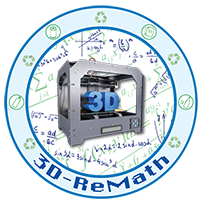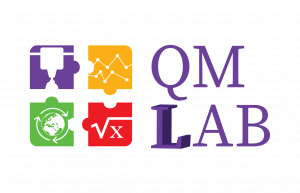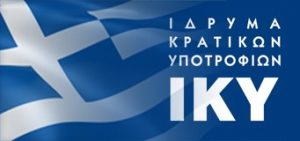University of the Aegean, Greece
The University of the Aegean (UAegean) was founded in 1984. It is a Network University of “academic ports of studies and research”, successfully established in 6 campuses (Lesvos, Chios, Samos, Rhodes, Limnos and Syros) spread across the Aegean Archipelago.
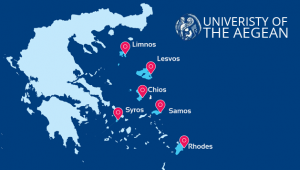 |
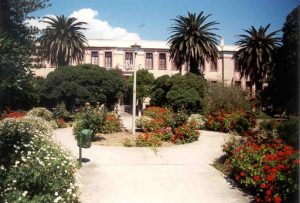 |
UAegean has organized and established 90 research laboratories with activities in the following research areas: ICT, Interactive Systems Design, Sustainable Development and Environment, Geography, GIS, Meteorology-Climatology, Transport & Shipping, Culture & Education, Economics, Business and Social Sciences. The Research Unit of the University of the Aegean is the administrative and managing mechanism. The Research Unit since 1985 has implemented more than 2400 projects for a total amount of 150 million Euros.
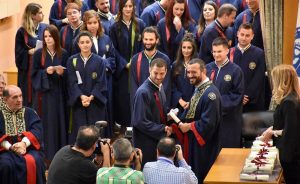 |
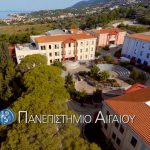 |
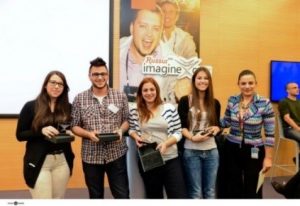 |
Activities
Three laboratories of the University of the Aegean are involved in the implementation of this project:

|
QMLab (Quantitative Methods Laboratory is founded in August 2003 and is located within the Department of Business Administration of the University of the Aegean, in Chios (Chios island, Greece) The Quantitative Methods Laboratory’s main fields of research are Quantitative Methods, 3D Printing, Management Science, Regional Development, Banking and Finance, and Accounting.
|
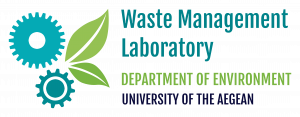 |
The Waste Lab was officially founded in 31 December 1999, and is located within the Department of Environment of the University of the Aegean, in Mytilene (Lesvos island, Greece) The Waste Management Laboratory’s current research topics are: Biowaste treatment Production of biofuels, Bioremediation, Constructed wetlands, Energy recovery for diverse types of waste, Anaerobic digestion, Composting, Analysis and simulation of environmental systems. |
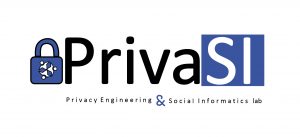 |
PrivaSi Lab founded in September2017, and is located within the Department of Cultural Technology and Communication of the University of the Aegean, in Mytilene (Lesvos island, Greece) The Privacy Engineering and Social Informatics Lab main researchic runs interdisciplinary research activities in the fields of Security, Privacy, Applied Computer Sciences and Informatics in Social Sciences. |
2nd Primary School of Chios, Greece 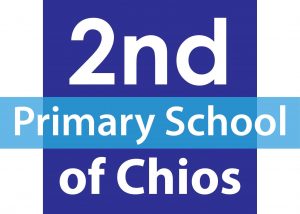
The 2nd Primary School of Chios is a school public education at Chios Island. It a school of about 210 pupils and 25 educators open to society, to new ideas, to knowledge and to the future. This school has participated in local, national, pan European and transnational projects (Comenius, Erasmus, e-twinning etc). Moreover, a lot of actions are carried out in cooperation with experts, agencies, several types of organizations inside and outside school. In 2017-18 it has worked with the Bureau of Archaeology and we commonly devise a pilot program entitles ‘Adopt a Monument’. The school has ‘adopted’ the Archaeological Museum of Chios. In 2018-19 it has cooperate with the University of the Aegean and the“Maria Tsakos Foundation” pilot program in a “Ship adoption” entitled “The Ship goes to School”. During the last three years the 2nd Primary School of Chios haw participated in an Erasmus+ project entitled ‘Full steam ahead for education’.
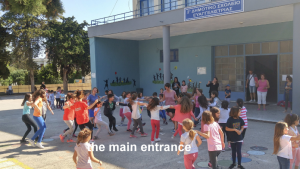 |
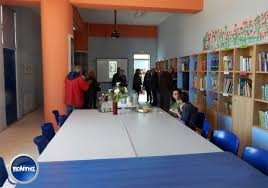 |
The school has a new unified, reformatted, educational programme. Every year students of the school take part in the competitions of the Hellenic Mathematical Society. Moreover, this school is currently participating in a robotics competition run by our ICT teacher from January 2016. It is also participated in European Chain Reaction which is a STEM project itself. Furthermore, the teachers frequently attend a number of seminars related to a variety of educational issues leading to the bettering of their teaching practices.
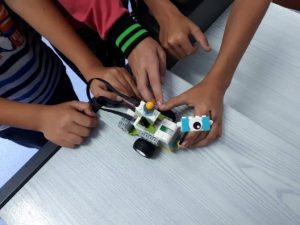 |
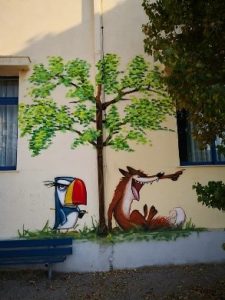 |
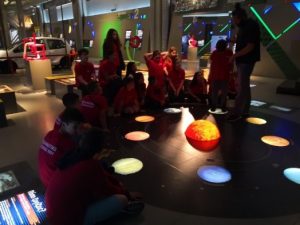 |
ISA13 Istituto Comprensivo Sarzana, Italy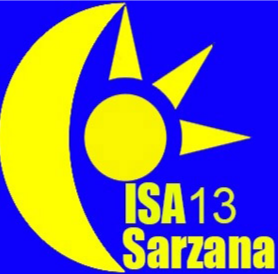
| The Istituto Comprensivo ISA 13 is located in Sarzana, a Ligurian city of about 22,000 inhabitants and second urban center in the province of La Spezia The ISA 13 gathers all the schools, from preprimary to secondary level of first grade, present in the municipal area for a total of over 1600 students and 180 teachers. More specifically, the schools of ISA 13 are: four (4) Kindergarten Schools – kids age 3 to 6, Seven (7) Primary Schools – kids age 6 to 11, and two (2) Secondary I° Schools (Middle School) – kids age 11 to 14 | 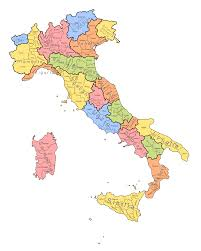 |
The area is affected by a moderate migratory flow, the incidence of the population of foreign origin (mainly coming from Romania, Morocco and Albania) is about 7.8%. The socio-economic background of origin of the students is mainly medium-high, but obviously there are situations of socio-economic disadvantage.
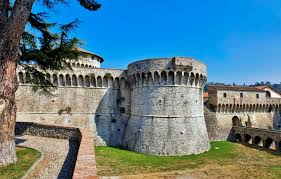 |
 |
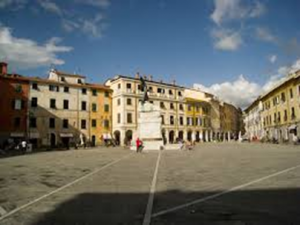 |
The Italian school system places special emphasis on inclusion of children with special needs, that can attend the same class as their peers. The institute counts 53 pupils/students with special needs receiving an extra help from a specialized teacher during the school days depending on the gravity of the disease (from some to 22 hours per week). Since the introduction of the Italian law 170/2010 about “Right to study of pupils and students with specific learning diseases” the Institute invested lots of energy on teachers training and updating in order to ensure appropriate support to the pupils/students.
Agrupamento de Escolas de Marrazes, Portugal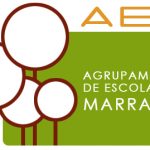
The Agrupamento de Escolas de Marrazes is a public education institution located in the municipality of Leiria. It is a school with the special status of Educational Territory of Priority Intervention (ETPI), serving a large number of students who belong to families from low and disadvantaged socioeconomic backgrounds and from several different cultural contexts.
The School organization integrates 24 schools: 10 kindergartens (children from 3 to 6 years old) 13 primary schools (students from 6 to 9 years old); 1 main school, 2nd and 3rd cycle of basic education (students from 10 to 15 years old).
The total number of students is approximately 1990 and a total of 176 teachers. There are a significant number of students from different countries (Brazil, Angola, São Tomé, Cape Verde, Morocco, Ukraine, Russia, China, Venezuela, Nepal …) creating a truly multicultural school.
The heterogeneity of the school community has a major impact on the differentiated responses that the school must give to students. Therefore, we seek to participate and develop nacional and international projects that involve students and teachers to learn and share new approaches, strategies and methodologies.
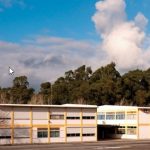 |
 |
One of our goals is to develop in young people comprehensive skills aimed at their cultural, scientific, social, civic and healthy lifestyle promotion.
Our School develops a close relationship with the community and invests in strategies and methodologies that help to improve students’ skills, contributing to the construction of truly democratic learning.
 |
 |
 |
